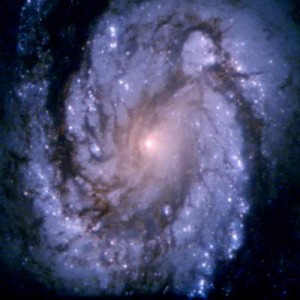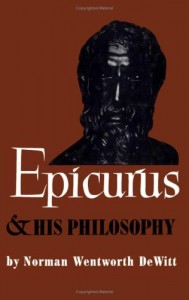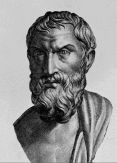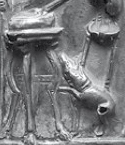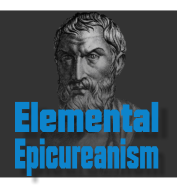Key Resources:
Epicurean Touchpoints Facebook Group on Physics
Past Articles:
What We Hold To Be True About The Universe
Epicurus summarized the principles that we hold to be true about the universe in his letters to Herodotus and to Pythocles.
In these letters, he reminded us of the important aspects of true reasoning:
We must outline the fundamentals in our minds so that, as we advance toward more difficult subjects, we may constantly refer to the foundational points. It is impossible to move forward in our understanding of the whole unless we can embrace in our minds short outlines of the larger rules that explain the smaller details.
Likewise, we must be sure we understand what each word in our reasoning process denotes. It is only by reference to words that we are able to determine answers to new inquiries or problems. If we do not understand the meaning of our fundamental words, our proofs will run on untested ad infinitum with words that are empty of meaning. The primary signification of what each word means must be grasped so clearly that no additional proof of that word is required. Only then can we move forward to define the meaning of new words, while constantly referring back to those we already understand.
Next, we must always remain true to the impressions we obtain by our three categories of faculties. Only in this way can we can we keep sight of the means of determining the difference between (1) those thing which we may hold to be true and (2) those things that are obscure and need further confirmation.
Once our Canonical foundation is clearly understood, it is time to consider those things in Nature which are obscure to us. But a note of caution is in order: we do not seek knowledge for the sake of knowledge itself. Our pursuit of knowledge about Nature has no other end in view than peace of mind and firmness of mental conviction. We cannot seek to wrestle ourselves by force into an understanding of those things which are impossible to grasp, and some things are indeed impossible to grasp, because we are unable to gather sufficient evidence about them.
Nor should we seek to understand all matters equally well. Our study of certain aspects of Physics, such as astronomy, is greatly limited by our lack of evidence. We must not think that we will be able to understand as much about the stars, which are beyond our ability to learn about except through how they appear in the sky, as we are able to know about human nature, which is directly before us here on Earth. With phenomena that we can examine up close, we frequently have sufficient evidence by which to determine that only one explanation of that phenomena is possible. In matters such as astronomy, however, any number of causes of a particular phenomena may be consistent with the limited evidence available to us. None of these possible causes can be eliminated unless they conflict with evidence that is clearly before us.
In the study of Nature we must not embrace empty assumptions and arbitrary rules – we must follow the facts wherever they lead. Our lives have no need of unreason and false opinion – our one need in life is an untroubled existence. We can obtain uninterrupted happiness and tranquility only if we condition ourselves to understand that, frequently, several possible causes of phenomena in nature will be consistent with the evidence available to us. In cases where evidence is insufficient to choose between multiple causes, we must keep in mind that multiple causes are possible. The great error which we must firmly avoid, no matter how tempting, is that of picking and choosing among possibilities that evidence supports equally. We must never arbitrarily reject one theory which is equally consistent with the what we can observe in favor of another theory, no matter why we are tempted to embrace it, unless we have sufficient evidence. If we allow ourselves to fall into this error, we fall not merely into mistake, we fall completely away from the study of nature — for our thought process has tumbled headlong into myth and fantasy and away from science.
Epicurus identified many general principles of Nature which endure as true to this day. In areas where his explanation has not endured, such as the size of the Sun, he himself stated that insufficient evidence required him to keep an open mind that the opinion he preferred was incorrect, and that some other possibility could be true. The details of many ancient observations are not of great relevance to us today, but Epicurus’ fundamental process, and many of his conclusions, remain valid. The most important of these physical observations are as follows:
To begin with, nothing comes into being out of what is non-existent. We know this to be true because we observe this to be the case, and we also observe that if this were not so, any thing could have arise out of anything, and again our experience is that this is not so.
Next, if any thing which exists could totally disappear and become non-existent, in the infinity of time everything would long ago have perished and dissolved into the non-existent. But again we see that this is not so, as we do see that many things exist even today.
Because we see that nothing comes from nothing, and nothing goes to nothing, we conclude that the universe as a whole — the sum total of things — has always existed and will always exist. The universe is the sum total of all that exists; there is nothing “outside” the universe into which the universe can change. Since there is nothing outside the universe, there is nothing “else” that can come into the universe and bring about change. By this we conclude that the universe as a whole has always existed. The universe was not “created” at a fixed point in time by any god or by any other force or anything “outside” or “above” itself.
Just as there is nothing “outside” the universe, the universe itself is composed of things that exist (“matter” or “atoms” or “elements”) and the empty space between those things that exist (“void”). When Epicurus spoke of “elements” or “atoms” or “matter,” he was not speaking according to modern scientific definitions. He was simply stating that at some fundamental level, basic building-blocks exist, and that these building-blocks are separated from each other by empty space.
We know that elements exist because existence of bodies is everywhere attested by our senses. As we have learned in our Canonics, it is upon sensation that reason must rely when it attempts to infer the unknown from the known. Further, we know that space or void exists, because if did not exist the elements would have nothing in which to be, and through which to move, as we plainly see that they do move. Beyond things that exist and the space that separates those things, there is no evidence to postulate that anything else exists.
We hold that Universe is infinite in size, for that which is finite in size has an edge, or an extreme point, and the edge or extreme point of anything can exist only in comparison with something else next to it. This means that both the number of the elements and the extent of the void is both infinite. We know this not by divine revelation nor from having traveled the universe, but by deduction. If the void were infinite and elements finite, the elements would not have stayed anywhere together, but would have been dispersed in their course through the infinite void. If the void were finite, the infinity of elements would not have anywhere to be.
Even though the Universe is boundless in size, and the number of elements is infinite, there is not an infinite number of types of elements in the Universe. We know this because the variety of shapes of elements, though indefinitely large, is not absolutely infinite – none are so large that we can see them with our unaided eyes.
The atoms or elements themselves are in continual motion through all eternity. This is because each atom is separated from the rest by void, which is incapable of offering any resistance to movement, and there is no place for any or all atoms to come to rest for an eternity.
Moreover, an infinite number of worlds exist, some like this world, others unlike it, and on some of which reside other races of animals and men. We must not suppose that all worlds have necessarily the same appearance as ours, and we do not have the evidence to determine whether the same those worlds have the same seeds out of which animals and plants and all the rest arise here on Earth. The seeds could be similar, or they could be different.
Before we turn to a discussion of the human soul, we should remember that the possibility of falsehood and error always occurs when we allow opinion to intrude where a fact has not yet been confirmed. In other words, error arises when we allow our minds to rush to judgment where the evidence to support the conclusion is insufficient. Only direct observation by multiple sensations is sufficient to establish truth, and in the matter of the nature of the soul the question is particularly difficult.
Keeping in mind the impressions that we receive from each of our three categories of faculties (for in these we find the most sure ground for judgment), we must recognize that the soul exists. Because it exists, it is therefore a corporeal thing, composed of the finest particles, so fine that we might almost think of it as air mixed with warmth, such as we think of our breath. But, in addition to these, there is a third part, more exquisite still, as is shown by the mental faculties and feelings, by the ease with which the mind moves, by thoughts, and by all those things the loss of which causes death. This substance, which we call soul, has the greatest share in causing sensation, but it would not have sensation were it not confined within the body.
On the departure of the soul, the body loses sentience; so long as the soul remains in the body, the body does not lose sentience by the removal of some other part. The soul can survive while only a part of the body remains, but the rest of the body dies when the soul departs.
The soul is not “incorporeal” as men often speak of it, for it is impossible for us to conceive of anything that is incorporeal except empty space. Empty space cannot itself either act or be acted upon, but simply allows bodies to move through it, so those who call soul “incorporeal” speak foolishly. If it were incorporeal, the soul could neither act nor be acted upon, but we see that both of these properties – that of acting and of being acted on – plainly do belong to soul.
As to how human life has arisen to what we see today from those elements which comprise the soul, and from those elements which comprise all other things, we must remember that in infinite time and space nature has been taught and learned many various lessons by experience. In the course of human history, reason develops what it receives, and makes fresh discoveries, among some tribes of men more quickly than among others. Thus even the words and names given to things were not originally set from outside themselves, but were set by the several tribes themselves according to their individual circumstances. Subsequently, whole tribes adopted their own special names in order that their communications might be less ambiguous to each other and more briefly expressed. And as for things not visible, so far as those who were conscious of them tried to introduce any such notion, they put in circulation among them certain names or sounds which they either instinctively uttered or selected by analogy from their existing words.
In regard to what we see in the skies above, more than anything else it is essential to understand that the revolution of the stars and planets, the solstices, eclipses, and the like, take place according to the laws of Nature, and without the command, either now or in the future, of any god. “Gods,” properly understood, enjoy both perfect bliss and immortality, and thus they experience neither troubles nor anxieties nor feelings of anger or partiality. Such feelings do not exist in those who enjoy eternal bliss, but rather exist only in those who are weak and experience fear and dependence upon their neighbors. Nor must we entertain the possibility that the stars – these globular masses of fire – are themselves gods and endowed with bliss, or that they decide on their own to revolve at will around the heavens. In every instance we must hold fast to our anticipations of the majesty which attaches to such notions as bliss and immortality, lest we fall into the trap of entertaining opinions about the gods which are inconsistent with this majesty. If we depart from the evidence of our anticipations and consider that blissful beings can act otherwise than our anticipations establish, this inconsistency will by itself produce the worst disturbance in our minds. Thus when we find phenomena invariably recurring, such as the revolution of the stars, the evidence establishes that the invariability of the recurrence results from the original action of the atoms, which came together without the will of the gods, into the current form of the universe as we see it today.
We cannot answer all questions about the soul and the universe, so remember that it is not the business of natural science to arrive at accurate knowledge of all things, but only the causes of those things that are important to us. Our happiness depends on keeping in mind that the heavenly bodies are not gods, but subject to the laws of nature, as we have discussed. In matters of physics where evidence is insufficient, we must not jump to premature judgments, but where the evidence of the anticipations as to the eternal blessedness and incorruptibility of the gods is clear, as it is, we must not entertain the multiple possibilities about the gods – we must hold firmly to the evidence which establishes that nothing suggestive of conflict or disquiet is compatible with an immortal and blessed nature.
Observe however that there is nothing in the knowledge of astronomy – of risings and settings and solstices and eclipses and so forth – that is necessary for our happiness. In fact, those men who study such matters – but who nevertheless entertain foolish notions that the heavenly bodies might be gods, or that the phenomena they see in the sky might be caused by gods – those men feel quite as much fear, or perhaps even more fear, than those who never take the time to consider astronomy.
When we investigate what we see in the sky – or any other place that is unknown – we must take into account the variety of ways in which analogous occurrences happen within our own clear experience, and we must reason by analogy to a conclusion. Be aware that there are many men who can not or will not recognize the difference between matters that may come about by a single cause, or from several causes. There are likewise many men who overlook the fact that some objects are seen only at a distance. We should not give credence to such men, but we should hold them in contempt, as such men are ignorant of the conditions that render peace of mind possible. So long as we keep in mind the principles of the Canon, it does us no harm to consider that there are several ways in which an event might occur. So long as our theories remain consistent with the impressions we have receive from the five senses, the anticipations, and the mechanism of pleasure and pain, we shall be tranquil as if we actually knew which of these several possibilities – all of which are consistent with the evidence – is in fact the actual cause.
As a summary of the most fundamental rules of physics which Epicurus held to be true, we have the following list:
- Matter is uncreatable.
- Matter is indestructible.
- The universe consists of solid bodies and void.
- Solid bodies are either compounds or simple.
- The multitude of atoms is infinite.
- The void is infinite in extent.
- The atoms are always in motion.
- The speed of atomic motion is uniform.
- Motion is linear in space, vibratory in compounds.
- Atoms are capable of swerving slightly at any point in space or time.
- Atoms are characterized by three qualities, weight, shape and size.
- The number of the different shapes is not infinite, merely innumerable.
There are many more details of Physics which Epicurus taught which are not included here, but this discussion is sufficient foundation for you to begin your own study of Nature. Always remember that the greatest anxieties of the human mind arise from the belief that the stars and other things which we see around us are themselves gods, or that they were created by gods, even though such things are acting in ways which are inconsistent with the blessedness and incorruptibility of what we know about the true gods.
Men who give in to the myths of false beliefs and false religions come to expect and fear that everlasting evil will befall them, or they may simply dread of the mere loss of sensation that occurs with death, as if we had any concern whatsoever about things we cannot sense!. Such men are reduced to this pitiful state, not by conviction based on evidence, but by irrational perversity. Those men who think about the gods and death, but do not discover for themselves or learn from Epicurus the boundaries to these fears, endure as much or even more fear than men whose fail to consider the subjects at all! Mental tranquility comes from being released from all these troubles, and comes when we cherish in our minds a continual remembrance of the highest and most important truths about the Nature of Things.
Here, then, you now have a summary of the chief doctrines of Physics as taught to us by Epicurus. The study and commitment of these matters to memory creates men who are strong, self-sufficient, and incomparably better equipped than others to enjoy success and happiness in life.




